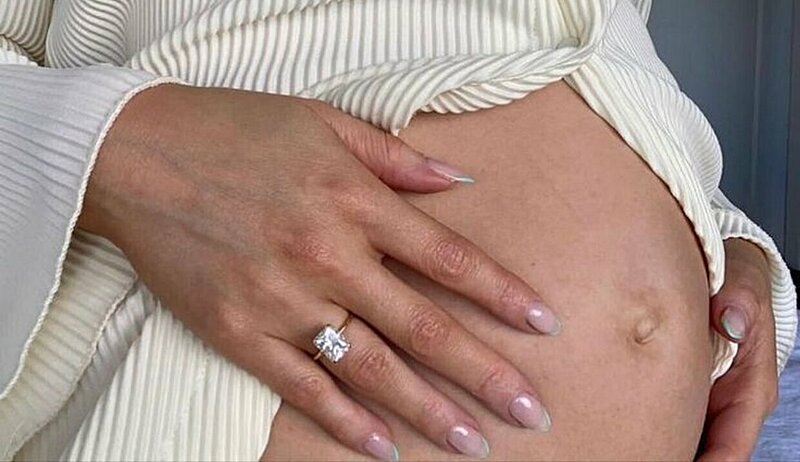Pregnancy is a transformative time in a woman’s life, bringing about changes that extend far beyond the growing belly. Hormonal shifts during pregnancy can impact various parts of the body, including your nails. If you’ve noticed that your nails are growing faster, becoming brittle, or changing texture, you’re not alone. Let’s dive into why these changes occur and how you can care for your nails during this period.
Why Pregnancy Affects Nail Texture and Growth
1. Hormonal Changes
During pregnancy, hormones like estrogen and progesterone surge to support the baby’s development. These hormonal changes can also stimulate keratin production, the protein that makes up your nails. This might result in:
- Faster nail growth: Nails may grow quicker due to increased blood flow and nutrients delivered to the nail matrix.
- Brittleness or peeling: Despite faster growth, nails may become weak or prone to splitting due to changes in moisture levels.
2. Increased Blood Circulation
Pregnancy increases blood circulation, which can improve the supply of oxygen and nutrients to the nail bed. While this can enhance growth, it may also cause nails to appear more ridged or textured.
3. Nutrient Fluctuations
The nutrients in your body are prioritized for the baby’s growth. If your diet lacks certain vitamins and minerals, it might affect your nail health. For example:
- A deficiency in biotin, zinc, or iron can lead to brittle or discolored nails.
- An imbalance of calcium may cause weaker nails.
4. Fluid Retention
Pregnant women often retain more water, which can make nails softer and more pliable, leading to an altered texture.
5. Underlying Medical Conditions
Occasionally, nail changes might indicate conditions like gestational diabetes or thyroid imbalances, both of which are more common during pregnancy.
6. How to Care for Your Nails During Pregnancy
Maintaining healthy nails while pregnant doesn’t have to be complicated. A few simple steps can keep them looking and feeling their best.
7. Keep Nails Trimmed and Neat
Trim your nails regularly to avoid breakage. Keep them at a manageable length to reduce the risk of snagging or peeling.
8. Hydrate Your Nails and Cuticles
Use a nail and cuticle oil or a moisturizer to keep your nails hydrated. Look for products containing natural ingredients like vitamin E or jojoba oil.
9. Wear Gloves During Chores
Protect your nails from harsh cleaning agents or prolonged exposure to water by wearing gloves while doing household chores.
10. Strengthen Your Nails Naturally
Avoid chemical-based nail strengtheners. Opt for natural remedies like:
- Olive oil soaks: Dip your nails in warm olive oil for 10 minutes a few times a week.
- Biotin supplements: Consult your doctor before taking biotin, as it’s known to promote healthy nail growth.
11. Avoid Harsh Chemicals
Skip nail polishes and removers containing harmful chemicals like formaldehyde, toluene, or acetone. Choose pregnancy-safe, toxin-free options.
12. Focus on Nutrition
Incorporate nutrient-rich foods into your diet, such as:
Protein: Eggs, lean meat, and legumes for keratin production.
Calcium: Dairy products and leafy greens to strengthen nails.
Iron and zinc: Nuts, seeds, and whole grains to prevent brittleness.
Omega-3 fatty acids: Fatty fish or flaxseeds for healthy nail beds.
Stay Hydrated:Drink plenty of water to prevent dryness and promote overall nail health.
13. Schedule a Safe Manicure
If you love manicures, make sure the salon uses clean tools and pregnancy-safe products. Avoid gel or acrylic nails that require exposure to UV light or strong chemicals.
14. Post-Pregnancy Nail Changes
After childbirth, hormonal levels gradually return to normal, and nail growth may slow down. Any brittleness or texture changes experienced during pregnancy typically resolve within a few months postpartum. However, if breastfeeding, some changes may linger due to continued hormonal shifts.

















